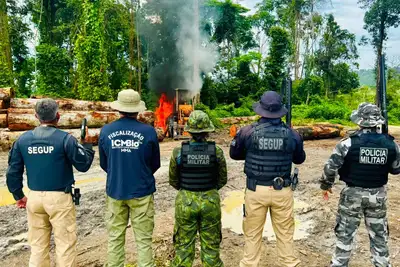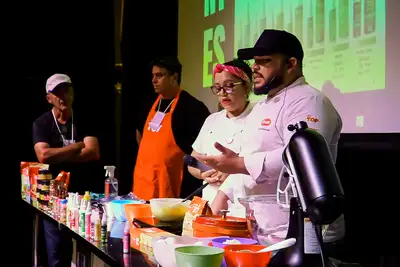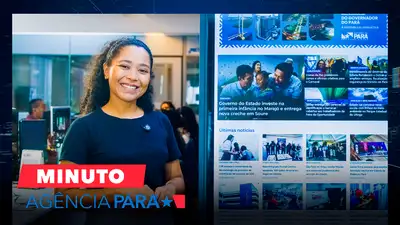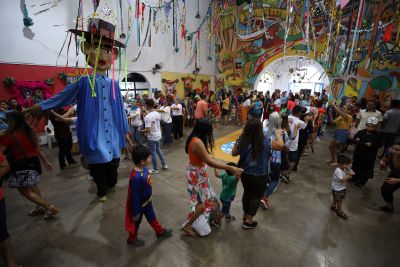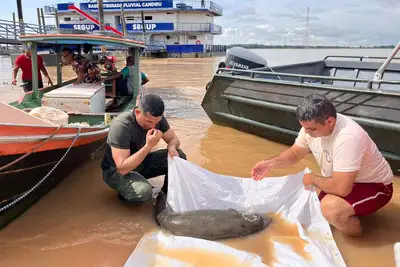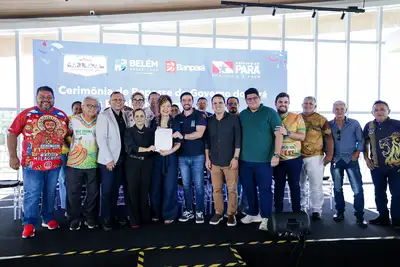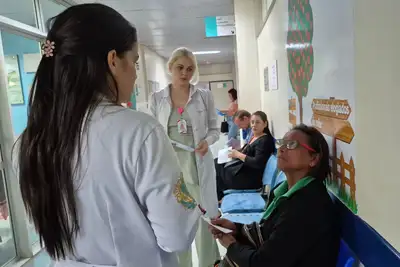State Full-Time School Promotes Protagonism and Inclusion with Puppet Project in Quatipuru
The initiative, developed by a student diagnosed with ASD, highlights the importance of art in the educational process
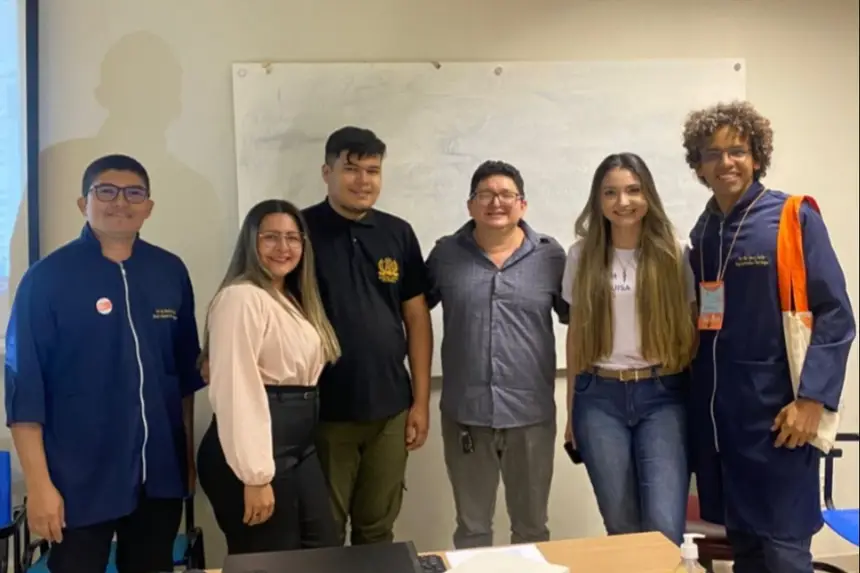
At the State Full-Time School João Paulo I, in Quatipuru, Rio Caeté Integration Region, art is more than a subject: it is a tool for inclusion, reinforcing the importance of understanding realities and encouraging innovative practices in the school environment. Thus, the Youth Puppet Club was created, idealized by the 3rd-year high school student, Vitor Hugo Martins, diagnosed with Autism Spectrum Disorder (ASD).
With the support of the management and teachers of the unit, the student mobilized the school community around a common interest: the creation of characters, plays, and narratives addressing the community's needs and solutions to local challenges, always using PET bottles, socks, buttons, and other recycled materials. In other words, waste is transformed into artistic expression.
Through the making of puppets and artistic presentations, the student found a way to enhance communication, strengthen bonds, and value diversity. The activities are carried out within the school's youth club and operate in creative workshops that involve other students and promote teamwork.
“I feel very happy to have developed this Youth Club, to have gone through the stages of guiding several people from different classes, and I feel fulfilled to be able to take and transform a simple puppet-making club into a future presentation at the end of the year. I found a way to teach, share knowledge, and connect with the students who accompany me in the club. Studying in a full-time school also means being a protagonist student,” shared Vitor Hugo Martins.
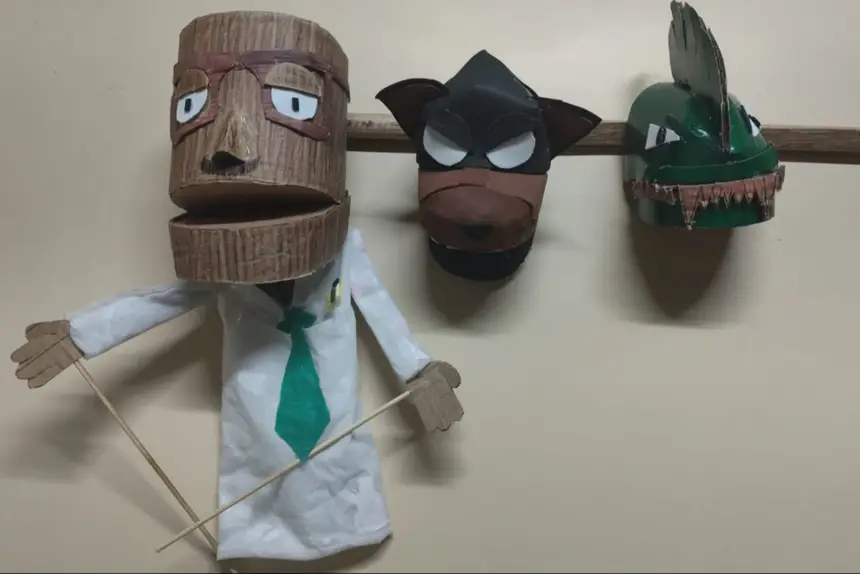
According to the Art teacher, Johnny Kepller, one of those responsible for monitoring the project's development at the school, the initiative demonstrates the importance of giving voice to students. “It is important to emphasize that the student's leadership destabilized stigmas and prejudices previously associated with his condition. The student's deep thematic knowledge and creative ability placed him in a position of expertise, reversing traditional power and competence logics within the school ecosystem,” he explained.
Leading the curriculum components of Sociology, Philosophy, and Life Project, Professor Manoel Rosário, who is also part of the project, emphasizes that the Youth Puppet Club stimulates the personal and academic development of students while reinforcing the commitment of Full-Time High School to the personal formation of the protagonist student. “Vitor Hugo is just one among many students who have done brilliant work in our school, and for us, it is a great joy to know that he is such a talented person. For us, as teachers, Vitor carries this mission of youth protagonism, and the school deserves congratulations for giving us this opportunity,” he said.
Highlight - The initiative has gone beyond the school walls and sparked the interest of the academic community. Based on the Youth Club, teachers Johnny Kepller and Manoel Rosário, who are pursuing a professional master's degree at the Federal University of Pará (UFPA), wrote the article “Art, inclusion, and protagonism: the artistic experience in the Youth Club of a student with ASD in Full-Time High School,” under the guidance of Professor Rafaela Alcântara, and submitted the project to the XI Biennial Forum of Research in Arts and the III Journey Art/Education Prof-Arts, promoted by the Federal University of Pará (UFPA), which took place from August 24 to 28.
Professor Kepller emphasizes that the experience demonstrates how Full-Time High School expands opportunities for students to develop talents, autonomy, and protagonism. He also views participation in the event as an opportunity. “I had never participated in the Biennial Forum, and it was a very good experience. We really have to thank the opportunities that the school management and Seduc itself have provided in this model,” said the educator.
“It was a great honor to participate in my Biennial Research Forum in Art, together with Professor Johnny. We wrote this material discussing the work of our dear student Vitor Hugo, and thus, through this work, we concretized and realized the fruit of a job that has been well done here in the community,” emphasized Professor Manoel Rosário.
For the student, being an inspiration for an important article developed by the teachers is a source of pride and gratitude. “I, a student from the interior of Pará, in a state school in the countryside, managed to create a Youth Club and, with that, participate in an event like the Biennial Art Forum of UFPA, is very gratifying. I leave a message for all students in Pará and Brazil: with support, you can reach places you never thought possible. I myself didn't believe I could make it to the Biennial, and I did. So, trust yourself, and at some point, you will also receive the recognition you deserve,” concluded Vitor Hugo.
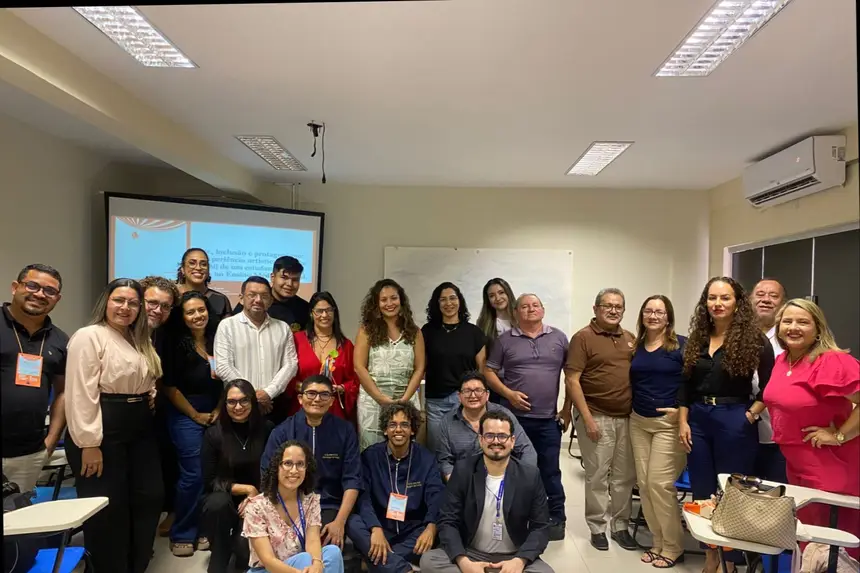
Full-Time - For 2025, the State Department of Education (Seduc) has established 49 more units that adopted the Full-Time Education Program (PEI), totaling 161 schools with this pedagogical model.
In addition to the increase in the number of schools, the positive impact of this expansion is clearly visible in the growth of enrollments. In 2018, schools in the full-time modality in Pará served 6,000 students; in 2025, there was a leap to 48,000 enrollments, an eightfold increase in capacity. A result that reflects the State's commitment to providing more opportunities for students, with access to quality full-time education.
With this expansion, Pará consolidates an education model that seeks equity and excellence, ensuring that more students have access to a comprehensive educational formation that prioritizes knowledge and human development.


